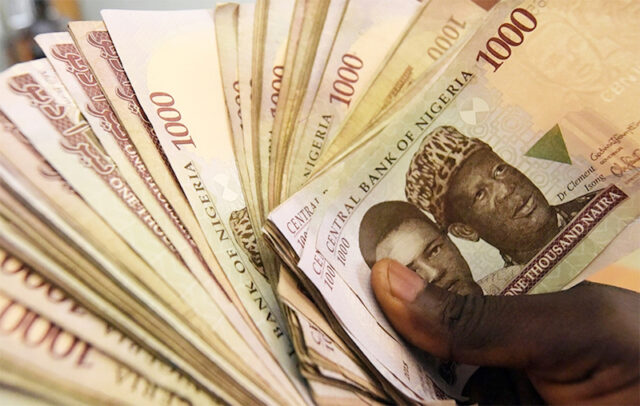Nigeria is planning to introduce new foreign exchange rules — including a crackdown on illegal currency trading — that it hopes would result in the naira closing its more-than- 45 per cent gap with the unofficial rate and reaching a “fair price” by year-end, a top official told Bloomberg.
The government plans to clear a backlog of dollar demand estimated at about $6.7 billion, bolster the naira forward market, and set transparent rules for the operations of the official market, Taiwo Oyedele, chair of the presidential committee on fiscal policy and tax reforms, said in an interview.
It also aims to expand the official market to include all legitimate transactions, while snuffing out the illicit “black market” for foreign currency, he said.
“We think all of that will happen before December, and maybe in a matter of a couple of weeks we will begin to see the results, such that before the end of the calender year, naira should find its true value, not the one that is being done currently in the parallel market,” Bloomberg quoted Oyedele to have said.
The government sees a “fair price” for the dollar at N650 to N750 he said. That compares with the official exchange rate which sells around N800/$.
Nigeria allowed its currency to trade more freely against the dollar in mid-June, resulting in a devaluation of about 40 per cent. It was hoping to attract more dollar inflows and improve liquidity that had dried after years of pegging the naira against the dollar.
The divergence between the official and parallel-market rates “means you are sucking liquidity and supply from the official market to the parallel market, because everyone wants the premium,” Oyedele added.
Nigeria expects to receive $10 billion of inflows in the coming weeks that will help ease liquidity and clear the backlog of overdue forward contracts weighing on the naira, the country’s finance minister, Wale Edun, had said at a summit in Abuja last week.
President Bola Tinubu signed two executive orders last week, that were also aimed at reversing the flow of dollars from the official FX window into the parallel market, Edun had also said at the summit. One would enable issuance of dollar-denominated instruments aimed at locals in Nigeria who have dollars, while the second was to issue dollar-denominated bonds directed at Nigerians outside the country, as well as and foreign investors.
Both executive orders are in the process of being gazetted, according to Edun.
While the central bank had informed lenders in June that the naira’s exchange rate against the dollar would be determined through supply and demand, it later appeared to have reintroduced controls to steady the currency after its 40 per cent plunge.
“There is a need for clarity on how the market operates, and that is a particular assignment that is in progress,” CBN Governor, Yemi Cardoso, who was appointed in September, said at the Abuja summit.
“Once that comes out and people are very clear on what the rules are, and what the guidelines are, and they can predict, I think it will go a long way in managing this speculative activity.”
Meanwhile, the naira appreciated for five consecutive days on the parallel market as it closed yesterday, at N1110/$, compared with the N1230/$ it closed last Friday.
But on the official I&E window the naira closed at N993.82/$, weaker than the N789.94/$1 it closed on Friday. However, intra-day trade from the data obtained by FMDQ showed that the highest spot rate exchanged at N998/$1 while the lowest spot rate recorded was N475/$1.
In the meantime, the country gave the clearest signal of its willingness to allow interest rates go up to match rising inflation and compensate weary investors after it sold one-year OMO bills at a record high of 21 percent.
The stop rate at the OMO auction held yesterday, was as high as 17.5 percent for the one-year tenor.
The higher interest rate meant the auctions were oversubscribed with investors staking as much as N325 billion, more than double the N150 billion on offer.







